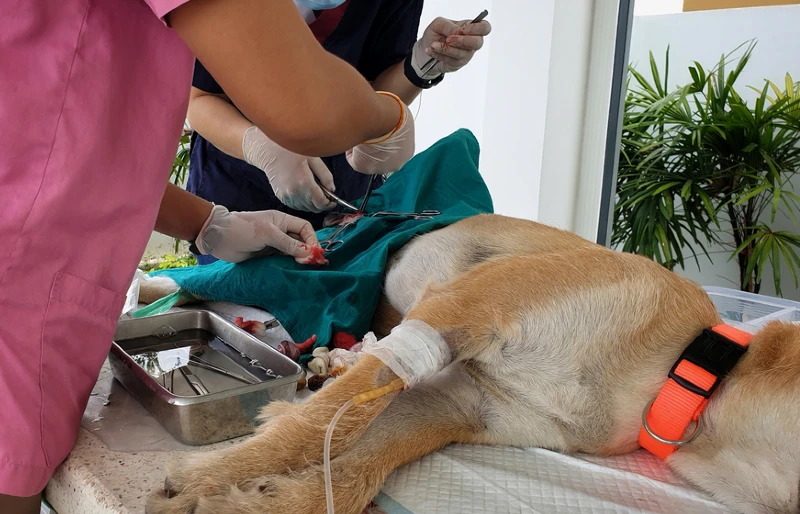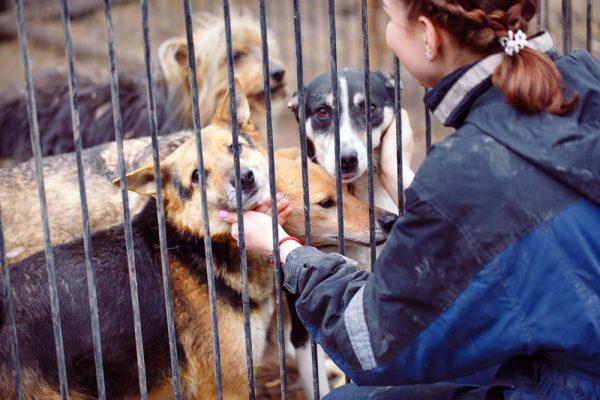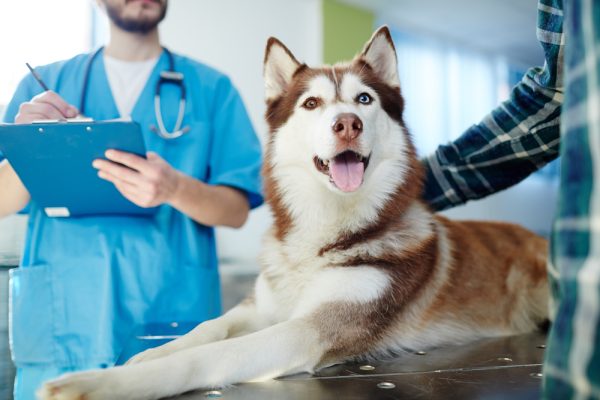In this article
Since the 1970s, low-cost and free spay and neuter programs have filled a crucial gap in reducing animal overpopulation and euthanasia rates. Owners facing financial hurdles to sterilize their pets now have options beyond pricey private vets. Thanks to services like these, over two-thirds of dogs in America today receive this critical surgery.
Even as low-cost clinics improve and expand, the question remains: Is this a better value? Private practices can charge hundreds of dollars more for this surgery, yet many experts and owners insist the added care is worth the cost.
If you’re wondering whether this is a case of “you get what you pay for,” we’ll explore the benefits, risks, and safety of low-cost or free spay and neuter surgeries for dogs.

How Safe Are Low-Cost or Free Spay and Neuter Surgeries for Dogs?
Low-cost spay and neuter programs are often run by non-profit organizations. Clinics help underserved and low-income communities increase their spay and neuter rates. At the same time, they give animal shelters ways to alter animals in their care before adoption.
The cost is by far the primary reason people choose these services. Many are unlikely to spay and neuter their pets without them. In one study, less than half of owners using these clinics would have used a private vet for spaying or neutering if low-cost services weren’t an option.
With the rising costs of these surgeries, over 25% of households have trouble paying for them. The idea of low-cost spay-neuter services is tempting, even for higher-income individuals. However, some veterinarians have reservations. Though many appreciate the need for these low-cost options, others are wary of the high volume of surgeries done in one day and the quality of the pre- and post-operative care.

Benefits of Private Practice Spay and Neuter Services
Working with a private veterinary professional who knows your dog can provide significant peace of mind if you can afford them. Vets provide comprehensive health services. You’ll know your dog receives the best care based on their unique needs.
Unlike spay and neuter clinics, your vet will understand your dog’s health history, helping them make the best decisions for their care. They can perform the necessary blood panels and tests to ensure your dog is a good candidate for anesthesia and won’t face any difficulties during or after surgery.
While low-cost clinics have high success with healthy dogs, the attention a private vet can offer is invaluable. The quality of pre-surgery screening, post-surgery monitoring and follow-ups, and pain management make the process as comfortable and low-risk for your dog as possible. With all the added support, many feel vets are worth the added cost.
Are Low-Cost or Free Spay and Neuter Surgeries Safe?
Low-cost or free spay and neuter clinics are generally reliable. A 2017 study found that the mortality for dogs spayed and neutered at one low-cost facility was 0.9/10,000. Not only was this much lower than the mortality rate for low-volume private clinics, but it was even lower than the 1/10,000 mortality rate for women undergoing a hysterectomy for benign health issues.1
The ASPCA’s network of high-quality, high-volume spay and neuter (HQHVSN) clinics has performed millions of surgeries alone, helping to drastically reduce pet overpopulation. The techniques are safe, quick, and easy to learn. Plus, the repetitive processes in HQHVSN clinics help their success rates. Vets performing these surgeries without focusing on other procedures can do so with high efficiency and few issues.

Benefits of Low-Cost Spay and Neuter Services
The savings on low-cost spay and neuter services aren’t their only benefits. Access to ongoing veterinary care is another concern for low-income owners. Even if they can spay or neuter their pets, they may struggle with vaccinations and routine checkups, keeping dogs at risk of costly health issues.
Owners using low-cost services are less likely to take pets to vets before spaying and neutering them than those using private vets for the surgery. Fortunately, as low-cost clinics improve their support for those in need, many now offer core vaccines and other essential services.
Another consideration is that low-cost spay and neuter programs and private practices aren’t mutually exclusive. Rather than steal business from vets, low-cost clinics make services available to those who would have otherwise been unable to get them. Many vets recognize this and provide professional support to HQHVSN clinics to ensure the long-term health of pets.
Low-Cost or Free Spay and Neuter Guidelines
Spay and neuter technology, education, and regulations are constantly improving, making high-quality, high-volume spay and neuter (HQHVSN) clinics more reliable than ever. In light of concerns about animal care quality in these facilities, the Association of Shelter Veterinarians (ASV) published care standards in 2008. They updated them in 2016.
The ASV defines HQHVSNs as “efficient surgical initiatives that meet or exceed veterinary medical standards of care in providing accessible, targeted sterilization of large numbers of cats and dogs to reduce the number of needless litters and subsequent euthanasia.”
Alongside their spay and neuter procedure guidelines, the ASV outlines recommendations for the surgery, anesthesia, and post-operative care.
What Are the Risks of Spaying and Neutering?
Spaying and neutering are a critical population control effort. Desexed dogs can’t reproduce and lose some of their hormone-driven aggression, making them less prone to issues at dog parks, daycares, and kennels. Many pet-care businesses even need dogs to be spayed or neutered before allowing them in their facilities. Significant health benefits include preventing womb infections and reducing the risk of mammary cancer in female dogs.
Most American owners sterilize their dogs, often when they’re under a year old. However, with the role of sex hormones in a dog’s development, new concerns surround routine early spaying and neutering of all breeds. Research has shown links to early neutering and increased occurrences of hip or elbow dysplasia and CCL tears in some breeds, as well as cases of lymphoma, mast cell tumors, osteosarcoma, and hemangiosarcoma. Discussing the timing of the surgery for your dog with your vet is advisable.
Spaying and neutering have also been associated with an increased risk of some other health issues, including obesity, diabetes mellitus, urinary incontinence, and bladder stones.

The Value of Talking to Vets
Even if you choose a low-cost or free clinic for your dog’s spay and neuter surgery, you can’t discount the value of talking to a vet beforehand. Complications are rare but may occur for countless reasons.
Preoperative blood work and screenings can make all the difference in avoiding issues that low-cost clinics may not be ready to handle. While you may use someone else for the surgery, your local vet can provide critical services.
Vets want the best for their clients and their pets. By talking with a vet before the surgery, you can get low-cost treatment for your dog while doing your due diligence to keep them safe and comfortable after the surgery.
If you need to speak with a vet but can't get to one, head over to PangoVet. It's our online service where you can talk to a vet online and get the advice you need for your dog — all at an affordable price!


Final Thoughts
From your dog’s breed and health status to the procedure, countless details go into ensuring a successful spay and neuter surgery. Expert knowledge is essential. A private veterinary practice is often the safest bet for peace of mind. But no matter your situation, educating yourself on the costs, benefits, and risks of low-cost or free spay and neuter services will help you make the best choice for you and your dog.
Featured Image Credit: SeventyFour, Shutterstock





















